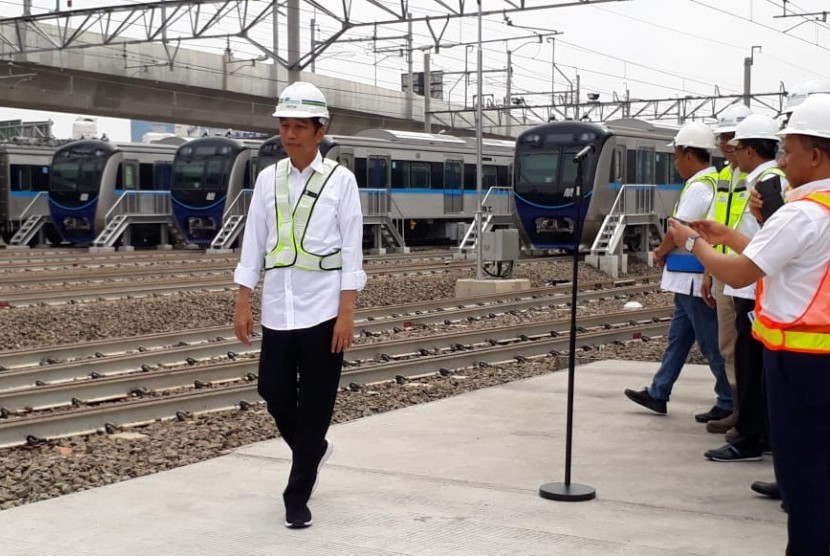REPUBLIKA.CO.ID, JAKARTA -- President Joko Widodo (Jokowi) believes it takes a brave approach to carry out development of mass transportation modes. Mass transportation is the future of public transportation to avoid congestion in any city, Jokowi remarked in a statement, here, Wednesday.
Ongoing construction of the Jakarta Mass Rapid Transit (MRT) is expected to be completed soon and become operational in March 2019, the president noted after inspecting the construction work at an MRT station in the Hotel Indonesia (HI) Circle on Tuesday (Nov 6).
"This project is 97 percent complete, and only three percent is left. We hope it would become operational, starting March 2019," he noted.
While riding the subway, he lauded the public transit for operating without noise despite touching a speed of 60 kilometers (km) per hour. "While riding at a speed of 60 km per hour, no noise was heard, and I think it is very good," he noted.
The second stage of the Jakarta MRT construction will link HI roundabout in Central Jakarta with Ancol, North Jakarta. To attract more people to use mass transit, MRT must be integrated with other transportation modes, such as Transjakarta, LRT, airport train, and buses, he noted.
"If we did not dare to take a decision, we would never know about the actual problems and challenges," he pointed out.
According to information from the Presidential staff office, until 2018, the Jokowi administration has built roads stretching a total of 3,432 km; toll roads, 947 km; bridges, 39.8 km; and 134 suspension bridges. The government has built two LRT, respectively in South Sumatra and Jakarta.
Some 10 new airports have been developed, and 408 airports have been revitalized and expanded in various regions, including in remote regions.
Infrastructure development aims to improve the country's connectivity and to boost equitable distribution of goods and services as well as to increase public productivity and competitiveness internationally.


